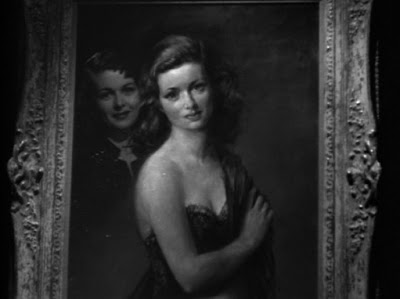Two Poems by Georg Heym
The German poet Georg Heym (1887-1912), just like his other contempory Georg, Georg Trakl, is considered (perhaps retrospectively) as belonging to the German Expressionist art movement. I was browsing through an anthology and was specially struck by these two poems. I like the first one specially. It is a wonderful evocation of an apocalyptic nightmare. It is also interesting to read this side by side the similar expressionist paintings of the period by Kandinsky, Kirchner, Munch, Beckmann and others. All obsessed with disease and death, the hopelessness and despair of city-life and everything painted on apocalyptic canvasses, alongwith willful exaggerations and distortions. A short review by Michael Hoffmann here. I had copied a couple of poems by Trakl earlier.
Umbra Vitae
The people on the streets draw up and stare,
While overhead huge portents cross the sky;
Round fanglike towers threating comets flare,
Death-bearing, fiery-snouted where they fly.
On every roof astrologers abound,
Enormous tubes thrust heavenward; there are
Magicians springing up from underground,
Aslant in darkness, conjuring to a star.
Through night great hordes of suicides are hurled,
Men seeking on their way the selves they've lost;
Crook-backed they haunt all corners of the world,
And with their arms for brooms they sweep the dust.
They are as dust, keep but a little while;
And as they move their hair drops out. They run,
To hasten their slow dying. Then they fall,
And in the open fields lie prone,
But twitch a little still. Beasts of the field
Stand blindly round them, prod with horns
Their sprawling bodies till at last they yield,
Lie buried by the sagebrush, by the thorns.
But all the seas are stopped. Among the waves
The ships hang rotting, scattered, beyond hope.
No current through the water moves,
And all the courts of heaven are locked up.
Trees do not change, the seasons do not change.
Enclosed in dead finality each stands,
And over broken roads lets frigid range
Its palmless thousand-fingered hands.
The dying man sits up as if to stand,
Just one more word a moment since he cries,
All at once he's gone. Can life so end?
And crushed to fragments are his glassy eyes.
The secret shadows thicken, darkness breaks;
Behind the speechless doors dreams watch and creep.
Burdened by light of dawn the man that wakes
Must rub from grayish eyelids leaden sleep.
Translated by Christopher Middleton
Why do you come, White Moths...
Why do you come, white moths, so oft to me?
Souls of the dea, why do you flutter so oft
Upon my hand; your wingbeat often
Leaven then a tiny trace of ashes.
You who are dwelling near urns, in a place where dreams repose
Stooped in eternal shade, in the dim expanse
As on the vaults of tombs the bats
That nightly whir away in the tumult.
I oft hear in my sleep the vampires's yaps;
They sound as if the somber moon were laughing.
And I see deep in empty caverns
The candles of the homeless shadows.
What is all life? The brief flare-up of torchlights
Ringed by distorted frights out of black darkness
And some of them come close already
And with thin hands reach for the flames.
What is all life? Small vessel in abysses
Of sea forgotten. Dreadful rigid skies.
Or as at night across bare fields lost moonlight
Meanders till it disappears.
Woe unto him who once saw someone dying,
When in the calmness of cool autumn death
Unseen stepped up to the sick one's moist bed
And bade him pass away, while like the whistling
And rattling of a rusty organ pipe
His throat exhaled its last breath with a wheeze.
Woe to such witnesses. They bear forever
The pallid flower of a leaden horror.
Who will unlock the lands beyond our death
And who the gate of the gigantic rune.
What do the dying see that makes them roll
The blind white of their eyes so terribly.
Translated by Reinhold Grimm











